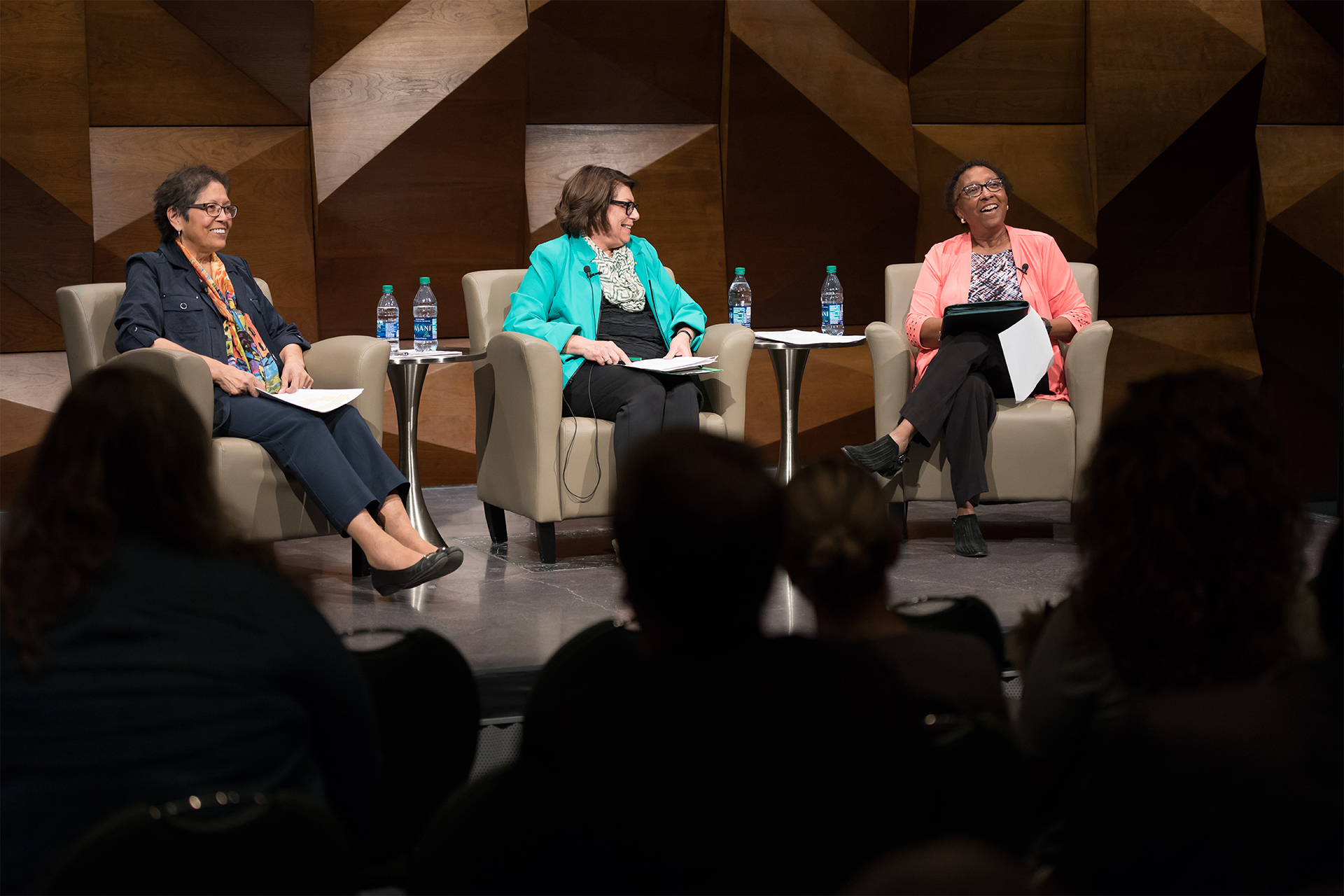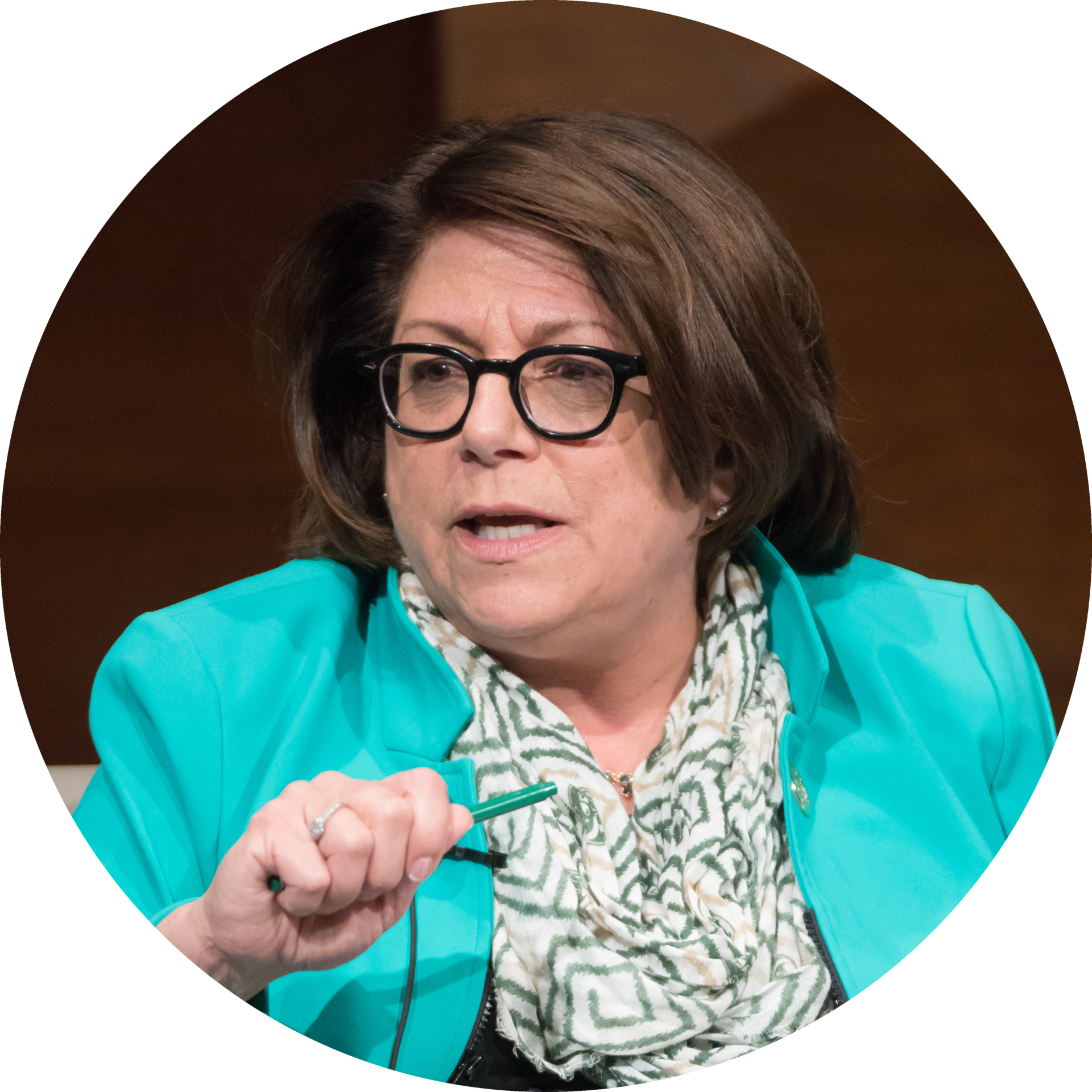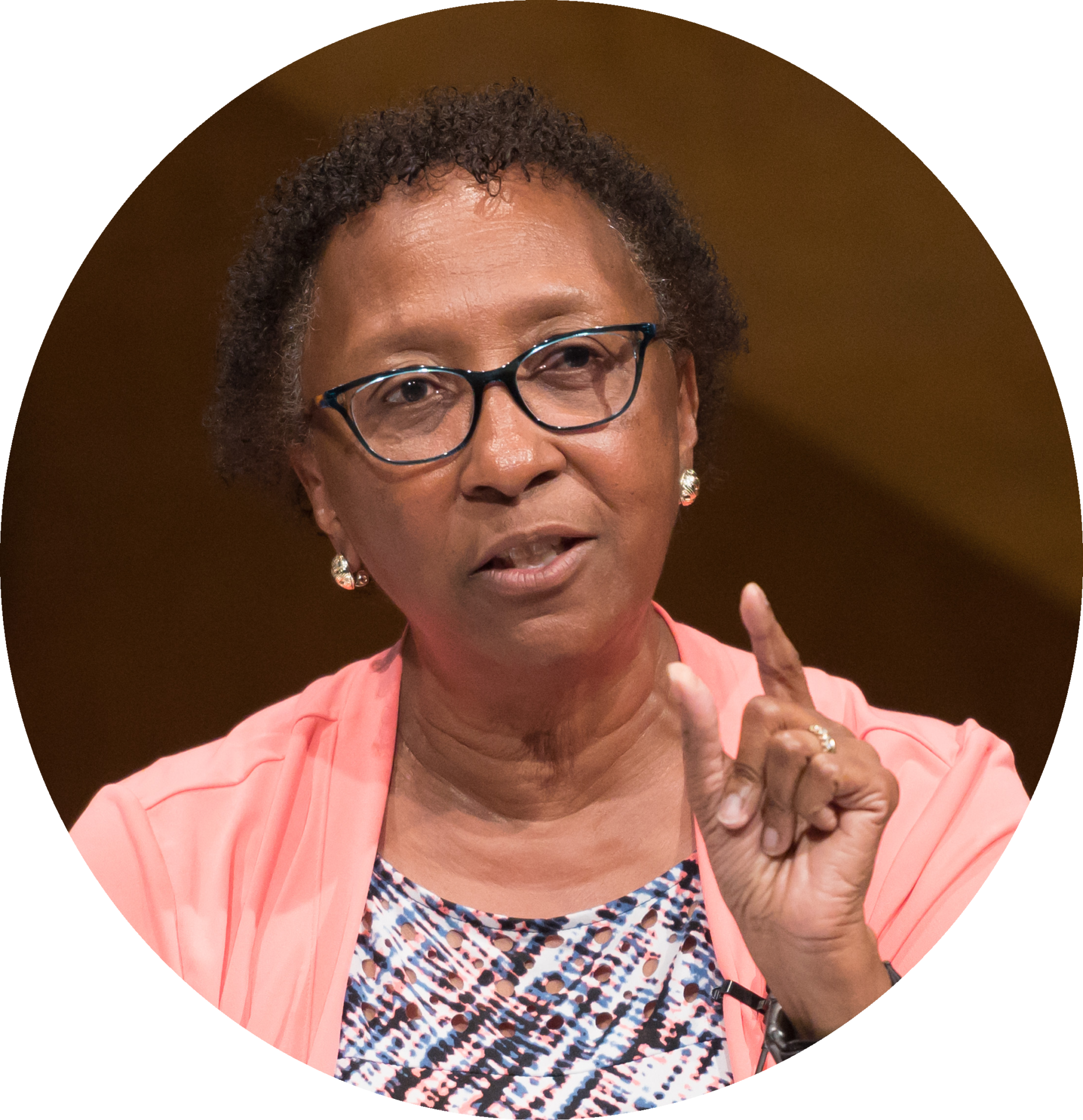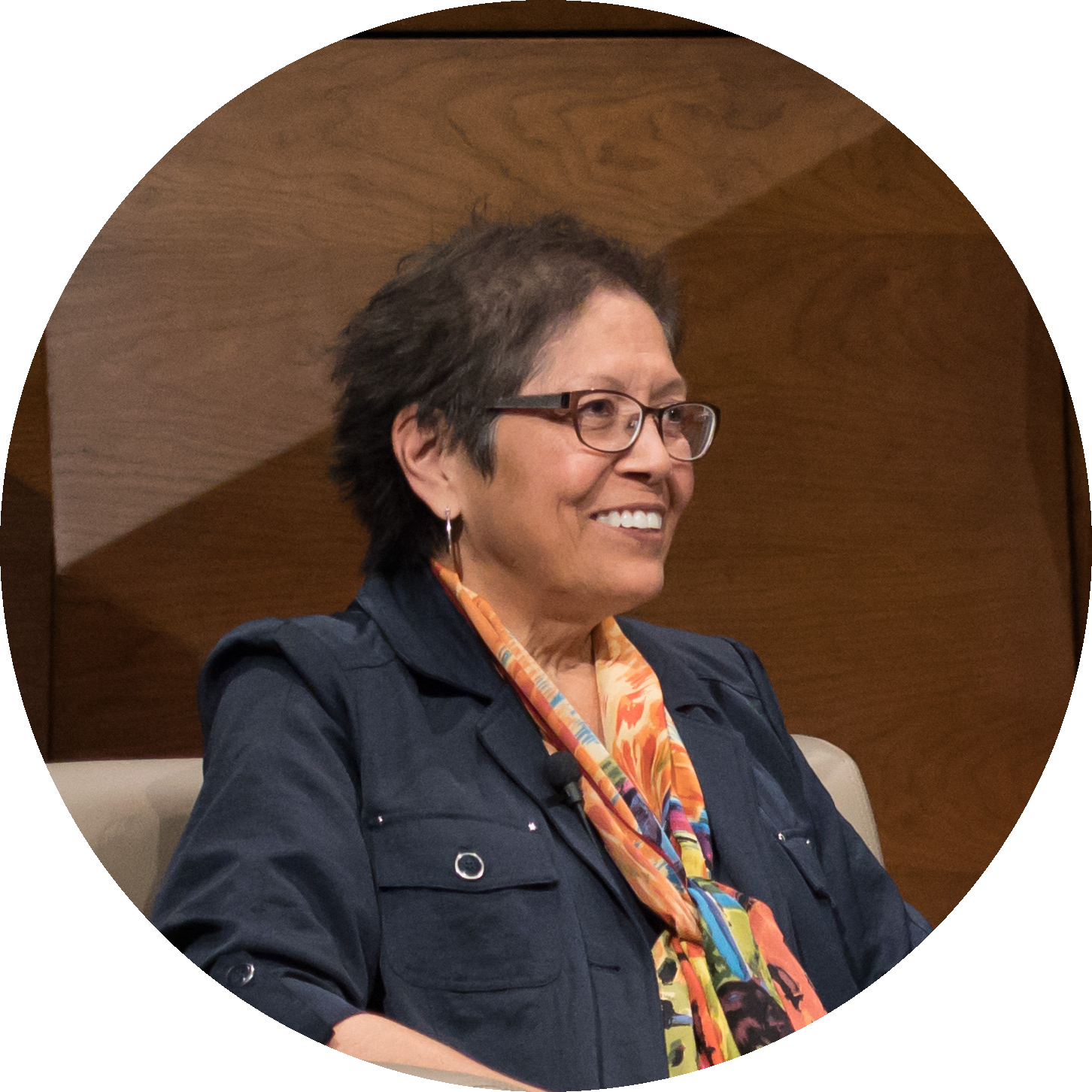
Attendees filled the Lory Student Center Theatre for the Diversity Symposium’s “fireside chat” on diversity, equity and inclusion with Vice President for Diversity Mary Ontiveros (left), President Joyce McConnell and Vice President for Student Affairs Blanche Hughes. Photo by Bill Cotton.
Colorado State University President Joyce McConnell shed light on her plan to combat racism and bias on campus and in the community during a discussion at the annual Diversity Symposium Oct. 16.
McConnell was joined by Vice President for Diversity Mary Ontiveros and Vice President for Student Affairs Blanche Hughes for a “fireside chat” on diversity, equity and inclusion. In their discussion at the Lory Student Center Theatre, McConnell provided details on the Race, Bias and Equity Initiative first announced during her September Fall Address in response to incidents of racial bias on campus.
The initiative incorporates aspects of a model used by the University of Washington since 2015 to improve campus climate. Washington’s initiative included raising diversity and inclusion to the highest level of the university by creating a committee of the governing body equivalent to CSU’s Board of Governors and challenged the entire community to work together to improve the campus climate.
McConnell said the Race, Bias and Equity Initiative will be coupled with “courageous strategic transformation” to root change across the campus.
“I believe that if we all pull together, we’re actually going to be able to take the initiative and use it as our tool for embedding these changes that will help us attack systemic racism and bias,” she said.

“I believe that if we all pull together, we’re actually going to be able to take the initiative and use it as our tool for embedding these changes that will help us attack systemic racism and bias.”
— CSU President Joyce McConnell
After having conversations with the campus community, McConnell said her executive leadership team are moving as quickly as possible to find remedies and actions. She said there are several initiatives in the pipeline just about to launch, including modules to help faculty in the classroom and student educational programming.
“I’m absolutely passionate about seizing this moment and driving us forward to make this place better,” McConnell said. “And I truly believe that the strength is when you can have the leadership from the top and all of the collective energy, wisdom and activism from the bottom; you get those two together, and then we can make this change solid and lasting and change that will make a difference.”
Impact of students
During the chat, McConnell and Hughes touched on the instrumental role that CSU students have played in advocating for systemic change.
In September, hundreds of students spoke out at the Associated Students of CSU meeting and silently marched the following day at the Fall Address in response to racially biased incidents on campus.
Hughes reflected on the more than 700 people who spoke at the ASCSU meeting, noting that she was initially surprised by their remarks because of the many efforts made by the Diversity and Student Affairs offices to improve the campus climate.
“I had to get past that and say, even with all the things we’re doing, it’s not enough,” Hughes said. “And we’re not quite hitting the mark because these students are sharing experiences that I had 40 years ago when I was in college.”

“We’re not quite hitting the mark because these students are sharing experiences that I had 40 years ago when I was in college.”
— Vice President for Student Affairs Blanche Hughes
Hughes shared her experiences as an African-American woman attending a predominantly white college in the 1970s. She said that today’s campus climate is different in the fact that today’s universities actually believe in diversity and want change.
McConnell said it was extraordinary to have the outpouring of students share their experiences at the ASCSU meeting, which underscored the fact that it’s CSU’s responsibly to take action.
“What we’ve heard loud and clear is students are really tired of carrying what they believe is a burden that they alone have carried,” McConnell said. “And we take responsibility for moving it forward.”
Impact of Office of Diversity
During the conversation, Ontiveros shared the history of her office, which promotes a campus environment that recognizes, values, and affirms diversity.
Ontiveros touched on new and existing programs and committees designed to create a community where all members are recognized, affirmed and valued.
She discussed the Consultation Team for Incidents of Bias, designed to respond to reports of racism and bias, as well as the annual Diversity Symposium, which included not only the fireside chat but a week of sessions and speakers on diversity and inclusion-oriented topics for the campus and community.
Ontiveros also said her office has to do a better job of communicating programs and services and has recently hired a new director of communications to spearhead that effort.

“We should not be afraid of the data. It may not show everything in a positive light, but that’s okay. How are we going to get better if we don’t know where the problems are?”
— Vice President for Diversity Mary Ontiveros
During her talk, Ontiveros pointed to the Employee Climate Survey, which allows faculty and staff to share their perspectives and experiences about working at CSU. She stressed the importance of using data as a way to provide transparency and spur action.
“We should not be afraid of the data,” Ontiveros said. “It may not show everything in a positive light, but that’s okay. How are we going to get better if we don’t know where the problems are?”
Community questions
Toward the end of the hour-plus conversation, McConnell answered a few questions submitted by members of the campus community.
McConnell said that CSU is working with the City of Fort Collins to address incidents of racism and bias beyond campus, noting that she has met with the mayor and city manager to confront the situation.
McConnell and Hughes both touched on the importance of alumni involvement. McConnell said they have had an outstanding response from alumni, many of whom are lending their professional expertise.
“We have a lot more work to do in reaching out to our alumni of color because they may have had experiences in the past that so marginalized them that they don’t want to engage,” she said. “And we have to reach out to them and tell them, ‘No, times are different. We’re working on this, and we really need your help in making a difference.’”